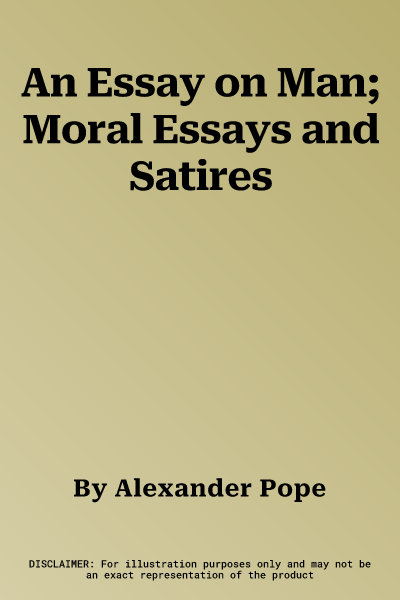Alexander Pope
(Author)An Essay on Man; Moral Essays and SatiresPaperback, 1 January 2023

Qty
1
Turbo
Ships in 2 - 3 days
In Stock
Free Delivery
Cash on Delivery
15 Days
Free Returns
Secure Checkout
Print Length
164 pages
Language
English
Publisher
Double 9 Booksllp
Date Published
1 Jan 2023
ISBN-10
9357278028
ISBN-13
9789357278027
Description
Product Details
Author:
Book Format:
Paperback
Country of Origin:
US
Date Published:
1 January 2023
Dimensions:
22.86 x
15.24 x
0.97 cm
Genre:
Christian
ISBN-10:
9357278028
ISBN-13:
9789357278027
Language:
English
Pages:
164
Publisher:
Weight:
249.48 gm

